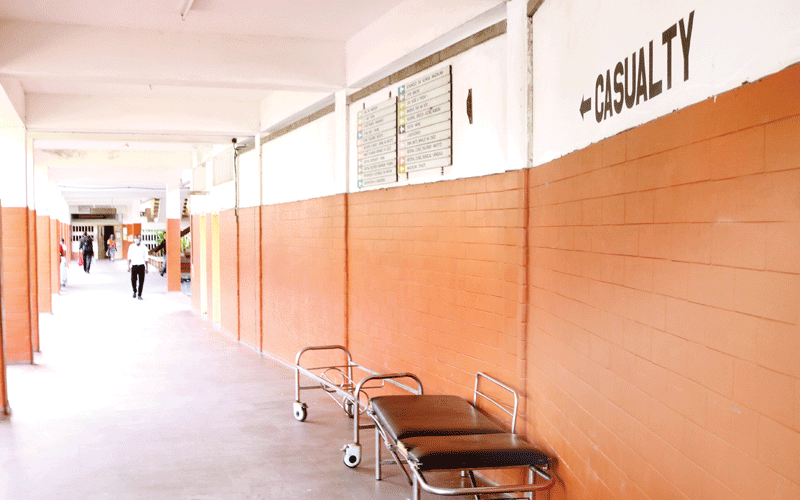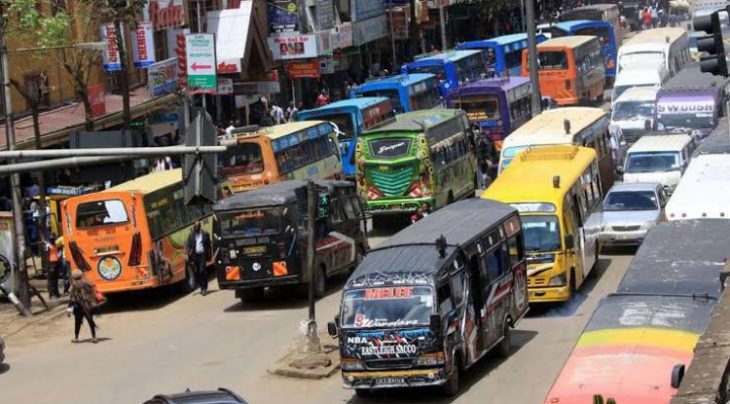Why Kenyans are avoiding hospitals in time of Corona

Murimi Mutiga @murimimutiga
Three weeks ago, John Maseke (not his real name), took his 14-year-old son to a public hospital in Nairobi after he developed a fever.
Apart from high body temperature, the boy had a headache. However, this did not worry him much because these are some of the common symptoms of malaria. He knew if it turned out to be malaria, his son would get better. But he feared for the worst—Covid-19.
Maseke knew very well that these are the same symptoms for the novel coronavirus. He, therefore, needed to have him checked by a doctor.
On arrival at the medical facility, the boy had temperature of 40°C. The screening was taken three times and it returned the same results.
At this point, the hospital staff who checked the temperature called in a doctor and a nurse.
“They started interrogating me on the history of the illness, asking me whether my son had come into contact with anyone with Covid-19. I panicked. They took me and my son to another room as the doctor walked to another while engaging in a phone conversation,” said Maseke.
What Maseke did not know is that together with his son, they were in for a long stay at a quarantine facility.
Quarantine charges
A few minutes later, four people dressed in white personal protective uniforms walked into the room.“They requested to take samples from my son for a Covid-19 test and after it was over, they asked us to follow them to an ambulance outside the emergency room. After a one-hour drive, we arrived at the Kenyatta University quarantine facility,” he added.
“From there, they contacted my wife and went to the house, picked her up and brought her to the isolation centre,” he added.
Maseke, wife and son spent the next 14 days at the isolation centre. At the end of the long, traumatising stay, he was forced to pay Sh84,000, Sh28,000 for each of them.
“After 24 hours, my son’s test came out negative for Covid-19. But a test for malaria turned positive. However, we could not leave the facility because they needed to do a second test on my son, my wife and I,” he said.
The child was put on artemisinin-based combination therapy to treat the malaria and after six days he was cured. Last week, the family left the quarantine facility poorer, traumatised and frustrated.
Maseke’s is not an isolated case. His dilemma is the story of many families and individuals in the time of Covid-19, the respiratory virus that struck and tossed the world into a spin.
Sure ticket
This is compounded by the fact that the symptoms of the disease — fever, headache, coughing and general malaise — are similar to those of many other illnesses.
Last week, a middle-aged man in Kiambusu, Matungulu sub-county of Machakos county was forced into self-quarantine after a thermometer recorded his temperature at 40 degrees Celsius.
Machakos Health executive Ancent Kituku said the man, whose identity was withheld, would remain in self-quarantine for the 14 days as a result of the high temperature.
Confronted with the reality and confusion, many Kenyans are avoiding going to hospitals for fear of exhibiting high fever, which is almost a sure ticket to a quarantine facility for at least 14 days and the attendant costs.
On the other hand, the health workers fearful of exposing themselves to the virus, do not want to take chances with anyone exhibiting coronavirus symptoms.
This is one of the reasons many people are not visiting medical facilities when they are not feeling well.
Many Kenyans who spoke to People Daily said they have not been going to hospitals to seek treatment for fear of being quarantined should they exhibit Covid-19 like symptoms.
The consequence is that more people are self-medicating and their first call is the pharmacy.
Damson Obara, a resident of Mlaleo area in Mombasa, says since the first case of Covid-19 was announced in Kenya on March 13, none of his five family members has visited a medical facility.
“My youngest son got sick a week ago. He had a dry cough and high fever, I went to the chemist and bought some antibiotics for him and he got well,” he said.
Faith Barchilei, an M-Pesa operator in Eldoret town in Uasin Gishu county, said she has never visited a hospital since the first Covid-19 case was reported.
“Coronavirus has instilled fear in me so much so that when I get chest pains, I prefer to buy drugs at the pharmacy instead of going to hospital,” she said.
Gregory Lwangu, a land broker also in Uasin Gishu county, said he stopped going to public or private hospitals after the first case of the disease was confirmed in the country.
In Kisumu County, Nelson Amugambi, a student, says many people have developed hospital-phobia because of the likelihood of being exposed to the virus at the medical facilities.
According to Peter Okiya, a newspaper vendor, some people are also afraid of visiting health facilities because they do not know what they are suffering from, yet they are exhibiting coronavirus symptoms.
In Nakuru county, Ann Wanjiru, a food vendor said she has not been to hospital for fear of contracting Covid-19 because most of the current health facilities have been turned into isolation centres.
There are also concerns that health workers could pass the virus to patients because they do not have adequate personal protective equipment (PPE) or are not well trained to handle the virus.
Acting Director General, Health ministry, Dr Patrick Amoth said by May 13, 33 healthcare workers had tested positive for Covid-19.
Public and private hospitals across the country are reporting dwindling number of people seeking medical help for non-coronavirus-related issues.
Owners of private hospitals are worried that if the pandemic continues, their businesses could suffer greatly.
The Kenya Association of Private Hospitals (KAPH) says many people are not seeking treatment because they fear contracting Covid-19.
Walk-in patients
“The number of sick people seeking services in private hospitals has gone down. This has serious financial implications for the facilities,” said KAPH secretary General Dr Timothy Olweny.
“Unless one is very sick, many people are heeding the government guidelines,” he said.
Doctor John Chamia, the owner of Jocham Hospital in Mombasa, says the facility has lost between 30 to 40 per cent of its walk-in clients.
“Walk-in patients with mild illnesses are not coming to hospital anymore. They are resorting to self-medication and this is sometimes dangerous in case of misdiagnosis,” he said.
Chamia said only serious illnesses are being presented in hospital.
“Deliveries and serious cases are coming to the hospital. We are still studying the situation,” he added.
Chamia said hospitals are also struggling with Covid-19 stigma as some are being shunned by patients once such a case is reported there.
“Once you get a Covid-19 patient, it’s very expensive because of the stigma. You will have lot of bad debts,” he said.
Dr Fardosa Ahmed, the chief executive officer of Premier Hospital, located in Nyali area of Mombasa, says the numbers of in and out -patients had dwindled.
“This problem cuts across all hospitals. Most people have become paranoid with hospitals,” she said.
Public hospitals, particularly in counties worst affected by the virus, are also deserted.
A visit to some public and private facilities yesterday revealed empty wards, casualty departments and pharmacies.
Officials say the number of people seeking treatment had gone down by more than half.
At Coast General Teaching and Referral Hospital where about 40 Covid-19 patients are being treated at an isolation ward within the facility, none coronavirus patients are not turning up.
Last month, Isiolo governor Mohamed Kuti said county governments were trying to move Covid-19 isolation facilities away from the main hospitals to encourage people to seek medical help for other cases.
He said many people are not going to hospitals for fear of being infected with the virus.
While acknowledging that there is a general drop in the number of patients seeking treatment in hospitals, Health Cabinet Secretary Mutahi Kagwe, however, attributed the decrease to hygiene measures meant to stop the spread of Covid-19. He said cases of diarrhoea and typhoid had gone down.
“Because of the hygiene measures arising from the safety guidelines issued by the government, the number of people seeking treatment in our hospitals has dropped,” he said.















